LG RESU Battery Review
home > battery storage > best battery systems > LG RESU Review
LG Energy Solutions, formally LG Chem, is ranked as one of the world's largest lithium-ion battery manufacturers with 29,000 employees and manufacturing facilities in South Korea, China and the US. The company supplies a diverse range of energy storage products for many industries including electric vehicles, portable electronics (mobile phones) and stationary applications. The large range of stationary lithium battery systems has positioned the company as one of the industry leaders in home solar battery systems and larger commercial energy storage (ESS) installations.
LG RESU Specifications
Battery Type: DC-coupled battery system (48V and 400V options)
Cell Chemistry: Lithium NMC pouch cells
Sizes available: 6.5kWh, 9.8kWh, 13kWh, (New 16kWh)
Usable Capacity: 90% capacity, (100% for 16kWh)*
Power output: 5kW continuous, 7kW peak (11kW for 16kWh)*
Cycle life: up to 4000 cycles (claimed) - Ref warranty doc
Price: RESU10 $6,400 **
Price: RESUH-10 $7,200 **
Warranty: 10 years - Refer to warranty section
** Prices in AU$ - Price drop Feb 2021. Prices may vary depending on region
NOTICE - LG RESU Battery Recall *
*Check if your battery is affected by entering the serial number from the identification label here.
The LG RESU Battery Range
The RESU or 'Residential Energy Storage Unit' range consists of both 48-volt and higher voltage 400-volt lithium-ion battery options. The 48V (LV) series is available in 6.5kWh, 9.8kWh and 13kWh. While the higher voltage (HV) 400V batteries are available two sizes - 6.5kWh and 9.8kWh. The new Gen-3 10kWh and 16kWh high-voltage ‘Prime’ batteries are due to be released in mid to late 2021, see further details below.
The complete LG RESU battery range including the new Prime battery series - Image credit LG
All size figures are based on the total available capacity (kWh), however usable capacity is limited to 90% for the 48V version, and 95% for the 400V series. For larger residential systems a maximum size of 19.6kWh can be achieved by linking two of the 9.8kWh (RESU10) battery units together using the LG RESU plus battery combiner unit - the RESU plus. The larger capacity RESU13, 48V battery was released in 2018 in order to compete with the Tesla Powerwall (13.5kWh) battery.
LG 48V RESU battery Specifications - Image Credit LG Energy Solutions
All LG RESU batteries are IP55 weather-rated. This means they can be installed in a semi-outdoor location such as a verandah or carport, but should not be located in a position exposed to direct sunlight, especially during the warmer months. As with any electrical/battery system, excessive prolonged heat is detrimental to the performance and life of the system.
High Voltage Battery options (400V)
Since the release of the first Tesla Powerwall, there has been an emerging trend towards higher voltage 300 - 400 Volt battery systems. These have several benefits over the traditional ELV 48V batteries including, increased efficiency, lower cable losses and the ability to be DC coupled with the solar array which operates at a similar voltage. However, all dedicated off-grid battery inverters operate within the traditional 48V range so the higher voltage batteries will generally not work for off-grid installations.
Note: The HV range of RESU batteries will be replaced with the next generation Prime battery series later in 2021.
LG 400V RESU-H battery Specifications - Image Credit LG LG Energy Solutions
New RESU Prime range
LG announced the third-generation (Gen3) battery system, the RESU 10H and 16H Prime due to be released in late 2021. Over the last two years, demand has grown rapidly for larger, more powerful battery systems which can compliment the movement towards all-electric-homes and electric vehicle charging. One area where the current range of LG batteries are limited is maximum power output which is fixed at 5kW continuous and 7kW peak (RESU10), even with two batteries combined.
The Gen3 RESU battery from LG addresses these limitations with a much greater 16kWh storage capacity and a higher continuous power rating of 7kW. However, the most significant boost is in regards to peak power which has increased to an impressive 11kW. The larger peak power rating means the backup loads on a typical household can now include high-surge power appliances like pumps and air-conditioners, so long as the inverter can also deliver the power required during an outage. The new Prime batteries will replace the older RESU-H range in 2021.
The new Gen3 RESU 16H battery is the largest and most powerful residential battery from LG chem
Modular assembly
LG Gen3 16H battery assembly - Image credit LG
In theory, developing a larger battery is easy, as the manufacturer just needs to add more cells making the battery capacity larger and heavier. However, the size and weight of high capacity batteries above 10kWh really becomes problematic in regards to handling and installation. Thankfully, this is one area where LG has taken on board feedback from installers and created a high-capacity modular battery system that can be carried and installed easily by two people.
Wide range of compatible inverters
LG has been listening to solar installers and working with many inverter manufacturers to ensure their product is compatible and easily configured with almost all of the best and most popular hybrid and off-grid battery inverter/chargers on the market. Unlike the first Tesla Powerwall, which was limited to two inverter types, the range of compatible inverter brands for the RESU range (LV) now includes a vast range of 48V hybrid and off-grid inverters.
Hybrid Inverters - 48V
SolaX hybrid
Ingeteam hybrid
Sungrow SH5K-30
Goodwe ES
Solis 48ES
Hybrid Inverters - HV 400V
SolarEdge StorEdge
SMA SBS-2.5 and SBS-5.0
Huawei SUN2000L1
Growatt TL-XH
Off-grid Inverters - 48V
Selectronic SP PRO
Victron Energy
SMA Sunny Island
More options coming - LG Energy Solutions are also working closely with several leading inverter manufacturers including SMA, Fronius and SolarEdge and will be delivering an even greater range of battery options throughout 2021.
Laminated Lithium Polymer Cells
LG Chem safety reinforced separator - Image credit LG Chem - CLICK TO ENLARGE
As opposed to many other manufacturers which use cyclindrical battery cells LG use a unique Polymer 'pouch' flat laminated battery design (PH3) which LG claim enables much higher energy density with increased reliability and safety. Layering the battery cell sections rather than rolling or bending the cell structure reduces the likely hood of failure and enables even heat dissipation across the cell area.
Fire Safe - The LG lithium modules have been fire tested to the UL1973 test standard which requires there to be no explosion or sign of fire when the battery cells is forced into a thermal runaway condition.
LG Chem Warranty
The LG RESU warranty is 10 years which is based on 2 main factors, the remaining capacity and energy throughput based on charge and discharge cycles. All batteries reduce capacity over time due to internal cell degradation, the LG warranty ensures the retained storage capacity is greater than 60% of the original amount. The warranty states that...
"LGC warrants and represents that the Product retains at least 60% of Nominal Energy for the either 10 years after the date of the initial installation or for a minimum Energy Throughput as per the table below (whichever comes first) when the battery system is operated under a normal use followed by the specification and the manual provided by LGC"
Extract from the LG chem warranty document
Careful in hot climates
The warranty also contains detailed operating criteria which limits the operating temperature and energy throughput over the battery life. This can be problematic for installations in hotter climates such as regional Australian towns and remote locations. Since exposed outdoor installation can easily reach 45°C during the afternoon in many Australian towns, careful consideration needs to be taken when locating the battery. Preferably locations include inside a garage or a well-insulated or ventilated area as high ambient temperatures above 45°C can accelerate battery aging and reduce storage capacity.
The LG RESU batteries have built-in sensors to monitor cell temperature and voltage to help extend battery life. To reduce degradation or the chance of thermal runaway the LG battery management system de-rates the power output by 50% once the internal cell temperature rises above 50°C and further de-rates power output completely once the temperature goes above 55°C.
Battery recall - Free replacement
In a blow to the company’s reputation, LG has decided to recall and replace, free of charge, a range of RESU batteries with cells manufactured between March 2017 and Sept 2018 due to a potential issue with overheating.
As we highlighted in this review back in 2018 (refer to the section above), the LG batteries can be sensitive to high temperatures. In this case, it appears this can lead to a thermal runaway condition perhaps due to a specific cell configuration, thermal sensor location, BMS parameters or simply being exposed to prolonged elevated temperatures.
IDENTIFICATION: The affected ESS Home Batteries are equipped with cells from specific production lots manufactured between March 2017 and September 2018. MODELS: RESU7H Type-R, RESU10, RESU10H Type-C, RESU10H Type-R, EM048063P3S4 and EM048126P3S7
Update: The recall has now been extended to all RESU batteries including the LV (48V) including RESU3.3, RESU6.5, and RESU10 varieties sold between April 2017 and September 2018.
You can check if your battery is affected by entering the serial number from the bottom or top identification label here.
Performance and life cycle
Most lithium battery systems have a 10-year warranty which guarantees the battery will retain a certain percentage of its original capacity after the 10-year period, or after a certain amount of energy throughput - a specific amount of energy charged and then discharged. In this case, LG warrants a minimum of 60% capacity remaining.
Since most lithium batteries have only been on the market for 3 to 4 years the real-world performance and rate of cell degradation over time is very difficult to determine. It is also dependent on a number of factors including operating temperature, depth of discharge, total cycles, and rate of charge. Fortunately, the independent ITP renewables lithium battery test centre in Canberra, Australia has been conduction accelerated testing on a wide range of batteries including the Tesla Powerwall and LG batteries with some very interesting results.
The latest LG Chem RESUH battery performance results from the ITP renewables Battery test centre.
Under the ITP test program, the LG RESU battery rate of degradation was 16% after 1,110 cycles which is equivalent to 3 years based on one cycle per day. At this rate, the total degradation after 10-years would be closer to 50% which is greater than the 60% specified by the warranty. However, it is important to keep in mind the accelerated testing regime is extreme and beyond the typical battery charge and discharge rates expected under real-world conditions. This is also a single test, and I would be confident the LG RESU would be ‘likely’ to satisfy the warranty requirements under normal conditions and rates of charge.
Battery Cost Comparison chart
Solar battery comparison - LG RESU V's Tesla Powerwall 2 plus leading batteries from the top manufacturers. See the complete solar battery comparison and review here for full details and specifications including estimated lifetime, cost per KWh, power output and compatibility with leading inverters.
Summary - Wrap up
The LG RESU series are generally regarded as some of the best value batteries on the market with a good reputation for quality. However, the company’s reputation has taken a small hit after the recent voluntary recall of many LG batteries manufactured in 2017 and 2018. The RESU’s success is still based on several factors, including the unique cell design, performance, and service backed by a huge multinational company.
The main concern is in regards to systems installed in high-temperature environments or exposed locations. Prolonged high temperatures above 40°C or locations exposed to direct sunlight could result in reduced performance or even system shutdown. With this in mind, it is always recommended to install any battery system in a semi-protected location out of the direct sun.
Despite the few drawbacks, LG stands out from the crowd of lithium battery manufacturers due to its build quality, value for money, diverse range of batteries, and compatibility with most leading inverters on the market. On the service side, the high level of industry interaction, training and warranty support has helped improve reliability, but the slow response during the battery recall has left many customers and installers frustrated due to the prolonged system downtime.
LG Commercial & Utility-scale batteries
LG chem also supply a range of battery units designed for high capacity rack mount commercial and utility energy storage systems with long-duration applications (greater than 1 hr). These are made up of 52V modules which are connected in series to create modular and scalable high voltage (LV) energy storage systems.
LG Chem rack mount high voltage commercial battery modules - Image Credit LG Chem
LG chem have a range of ‘Power modules’ designed for high output short duration applications (less than 1 hour) which are ideal for commercial installations where ‘peak lopping’ (also known as peak shaving) is required to maintain power draw from the mains below a preset level. This reduces strain on the electricity network and eliminates the extremely high usage charges associated with peak demand that cannot always be reliably sustained by the mains supply. The large scale storage systems can also be utilised by utility companies to help balance the electricity grid during peak times and of course help with the transition to a renewable energy power grid.



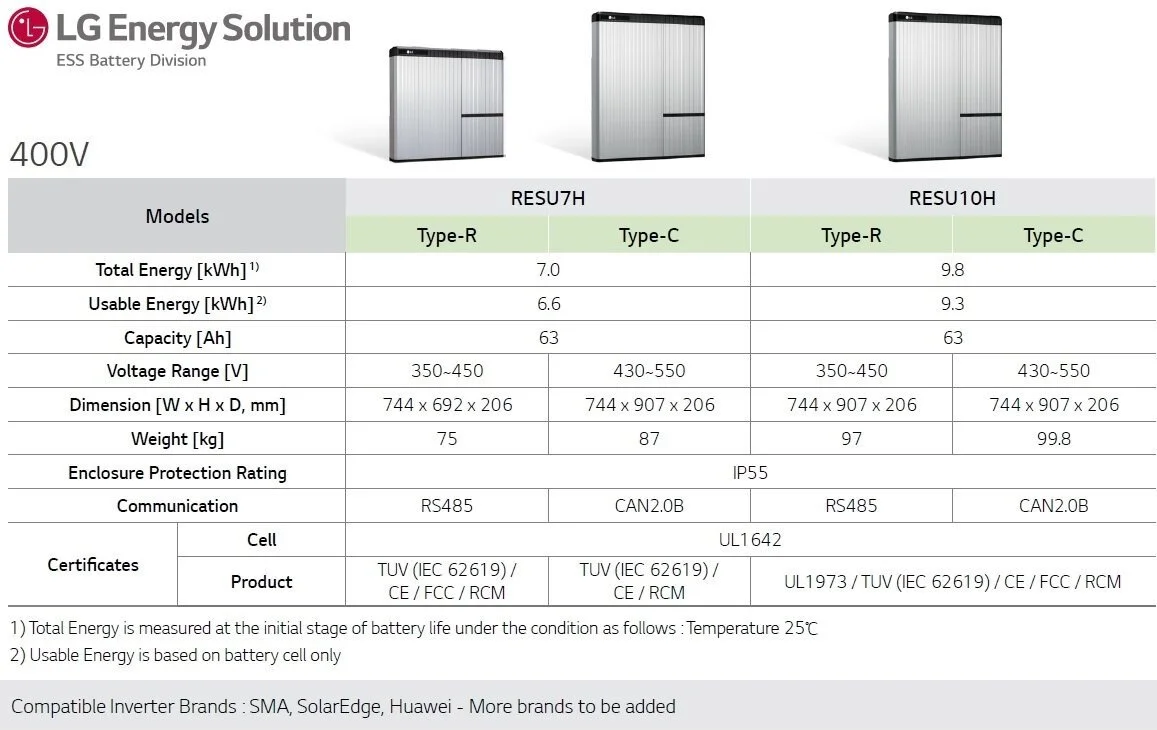
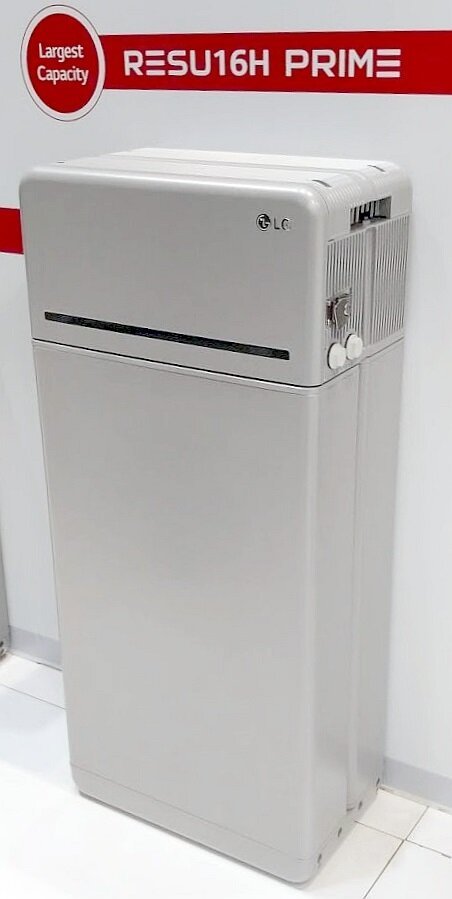

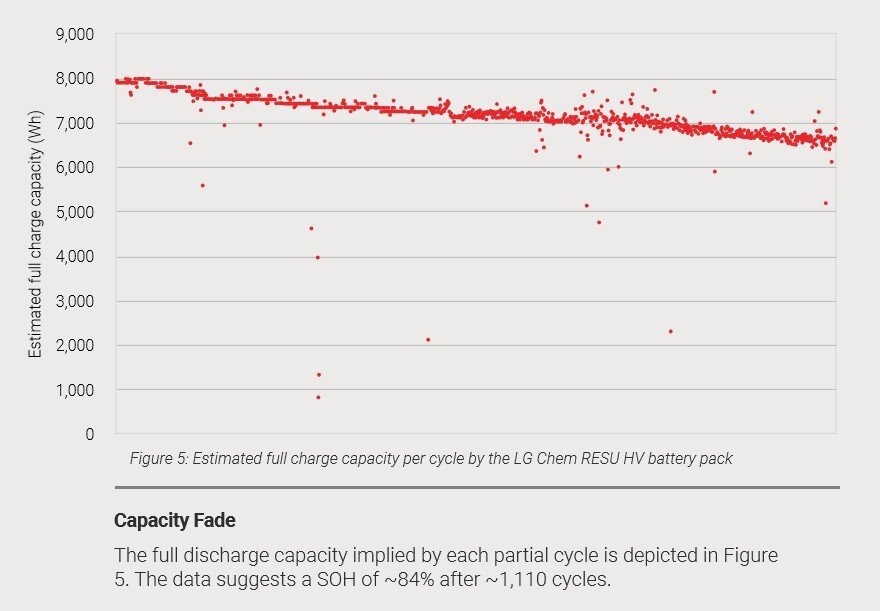
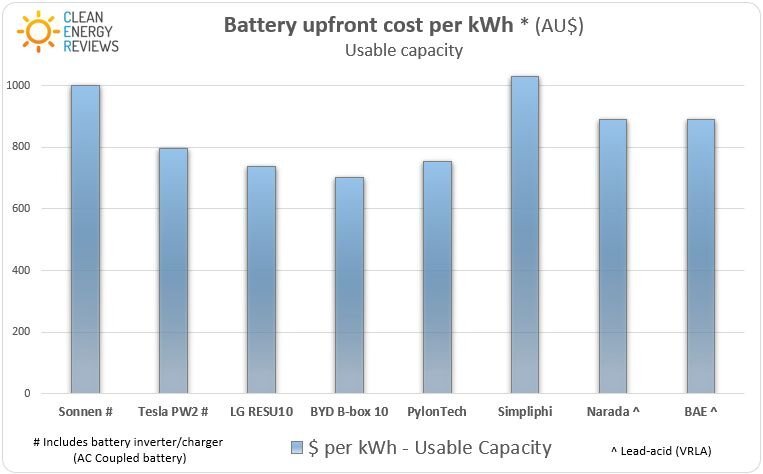


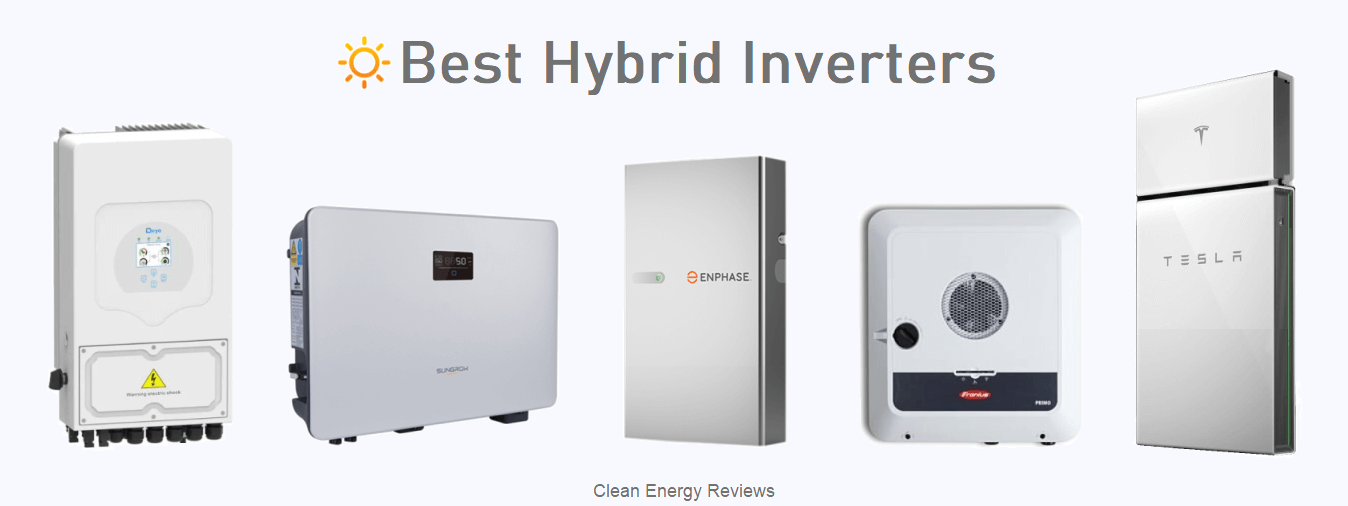


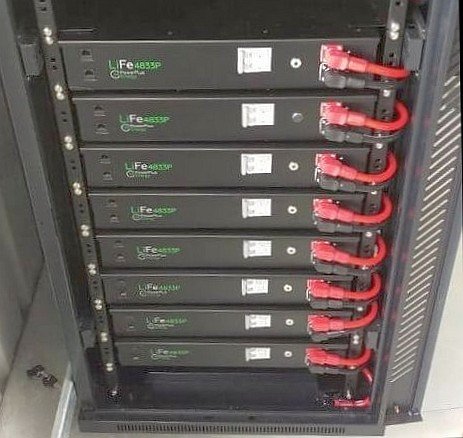



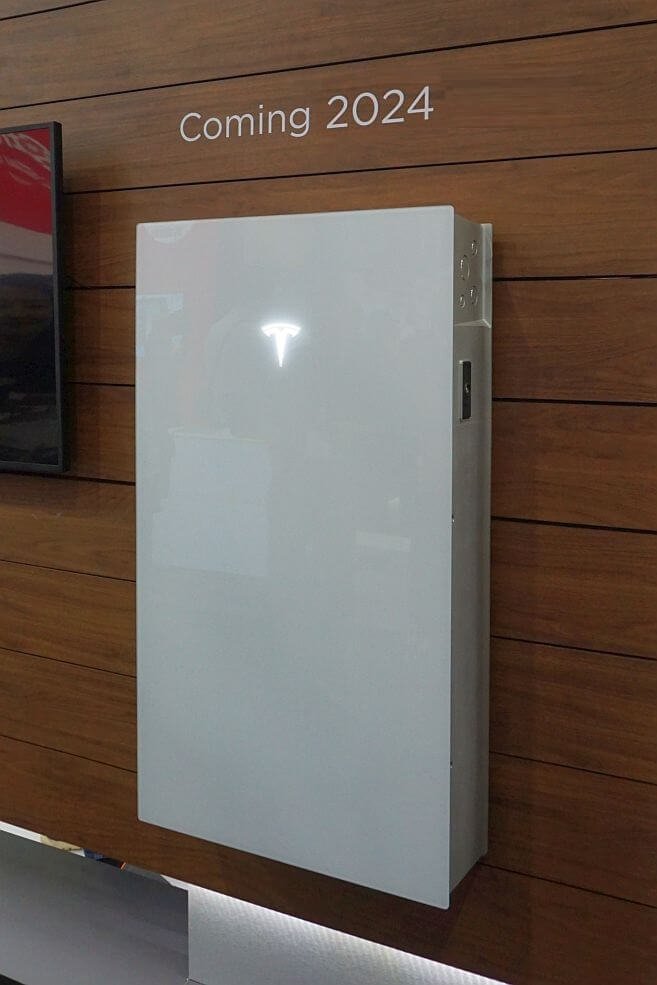
Detailed guide to the many specifications to consider when designing an off-grid solar system or complete hybrid energy storage system. Plus, a guide to the best grid-interactive and off-grid inverters and hybrid solar inverters for residential and commercial energy storage.